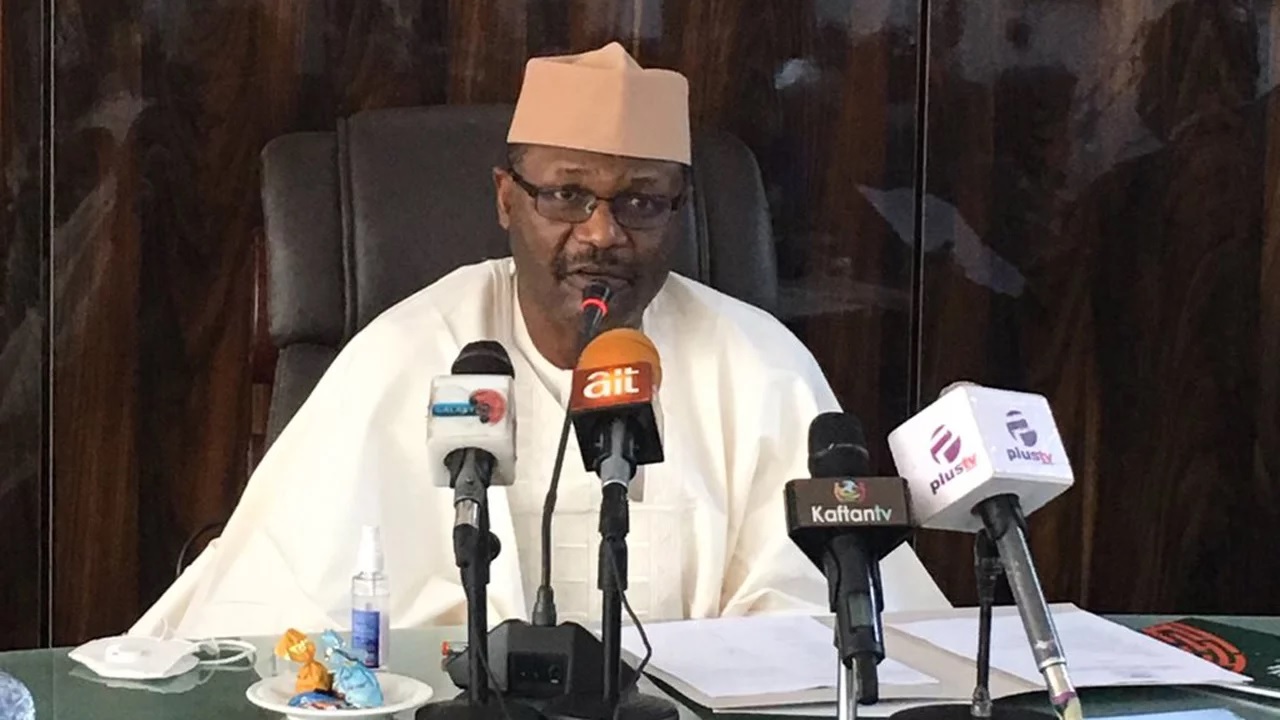The chairman of the Independent National Electoral Commission (INEC), Professor Mahmood Yakubu, has revealed that the result viewing portal of the commission was attacked by hackers during the recently held Ekiti and Osun governorship elections.
Yakubu made this know while delivering a keynote address at a stakeholders’ conference on election result management in Abuja on Thursday.
The chairman also said the commission had recorded several other attempts to hack into the cyber security system of the result viewing portal from outside the shores of the country.
The conference was organised by a civil society organisation, YIAGA Africa, to launch the election result analysis dashboard (ERAD) report agenda.
Yakubu said: “Another technical concern for us is the repeated attempts to break through our cyber security system for the portal.
“Our engineers reported several cyber attacks on the portal during the Ekiti and Osun governorship elections, some of them from as far as Asia.
“I am glad to note that all of them failed.
“However, while we are confident in the security solutions that we have deployed for IReV (result viewing centre) and all our web presence, we must remain vigilant and continue to strengthen our defences.
“We have tasked our engineers to do everything possible to fully protect the IReV and all our web resources.”
The INEC boss also said the commission was working towards addressing other challenges faced by it, most of which are administrative.
He said: “For example, we found that some of the low-quality uploads that occurred in the field, which some of the observers have also noted, were due to the unavailability or substitution of presiding officers that were trained prior to the elections.
“We shall administratively deal with this challenge and ensure that only adequately trained presiding officers are deployed for elections.
“Also, more hands-on training may be required to ensure that all those involved throughout the value chain of the IReV are fully ready for what is bound to be a major outing during the 2023 general election.”
YIAGA Africa on Thursday shared its findings on the electronic transmission of results in the 2022 Osun and Ekiti governorship elections.
The Executive Director of YIAGA, Samson Itodo, said the organisation curated an election result analysis dashboard (ERAD) as an independent audit and integrity test assessment tool for the result management of the Independent National Electoral Commission (INEC).
INEC had, in 2020, established a result viewing portal (IReV) to provide the public access to election results from polling units upon completion. The relative real-time publishing of election results was part of the commission’s commitment to transparency in results management, which Itodo said ERAD was piloted to test.
Sharing the findings on Thursday in Abuja, Itodo said some “issues” in the Ekiti and Osun elections affected the processing of results on the ERAD platform which was targeted at providing credible information.
“In the Ekiti election, eighty-eight (88) result sheets were not entered into the ERAD database due to issues that disabled data entry. Similarly, eighty-seven (87) results were not processed on the ERAD in the Osun election owing to some issues,” he said.
“Based on the ERAD findings, INEC presiding officers uploaded forms or documents other than Form EC8A as prescribed in the guidelines and manual for the election.
“Blurry images and poorly captured photographs of result sheets were uploaded on the IReV portal in both elections. It was impracticable to decipher the number of votes scored by political parties on the uploaded forms. In some cases, the presiding officers uploaded truncated images of result sheets. In other words, the images omitted segments of the result sheets.
“From the result sheets downloaded on the IReV, important delimitation data such as number of registered voters and accredited voters for polling units was either omitted or wrongly inputted on the Form EC8A.
“Contrary to the provisions of the electoral act 2022 and INEC guidelines and regulations, some polling unit level results (Form EC8A) uploaded on the IReV were not stamped or signed by the presiding officer.
“Based on results entered on the ERAD database, there was a variation in the total number of rejected ballots, and the figures announced by INEC at the final collation.”
Itodo said ERAD’s findings revealed inconsistencies in the data on the permanent voter card (PVC) collection, adding that it was noticed across over 10 LGAs in Osun.
“An analysis of the number of registered voters and the PVC collected by polling units revealed some inconsistencies in the data. Findings from the analysis of the Osun PVC collection data revealed that the total number of PVCs collected for 30 polling units was greater than the total number of registered voters in those polling units. These inconsistencies were recorded in 12 LGAs,” he said.
